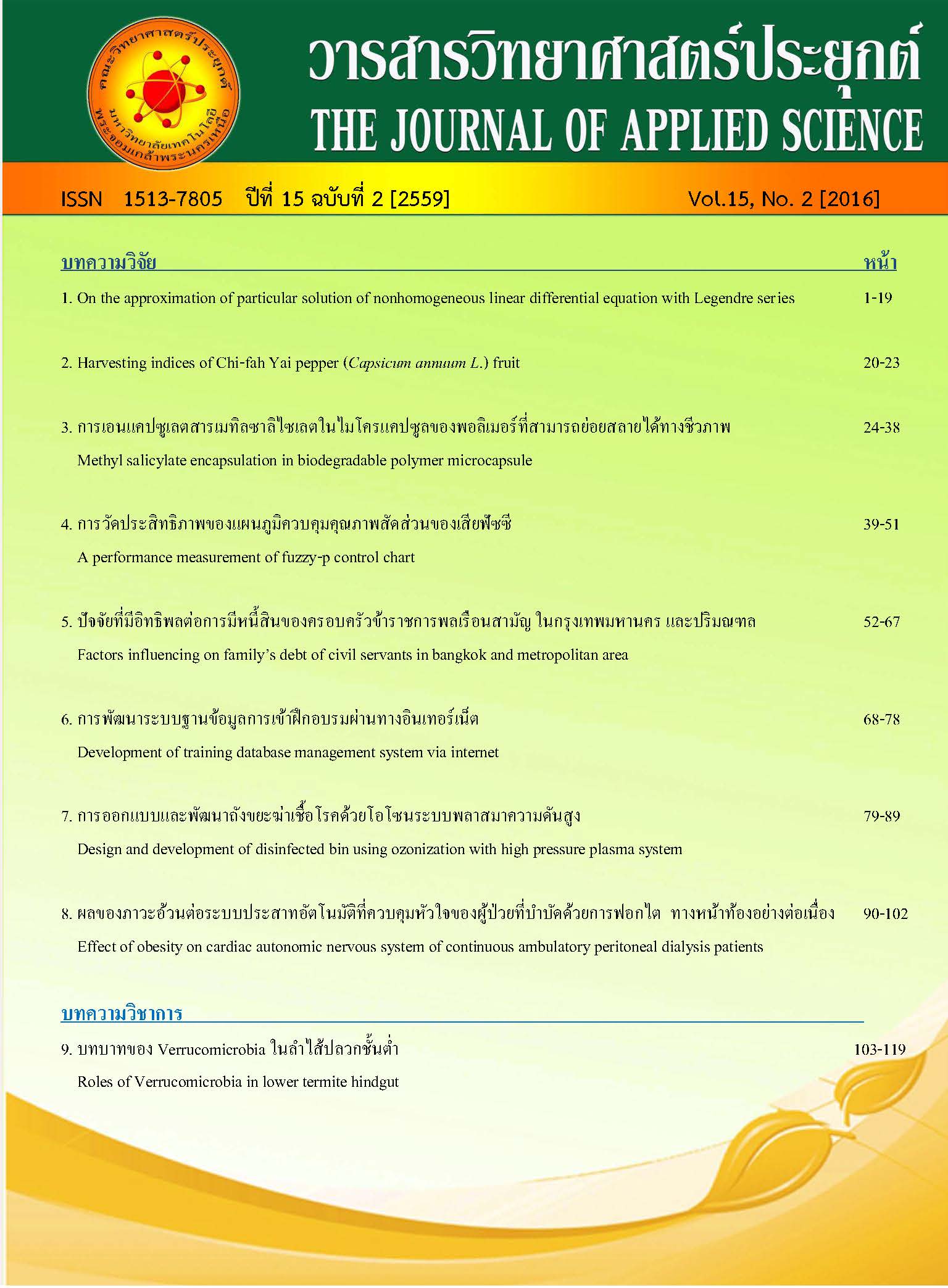Effect of obesity on cardiac autonomic nervous system of continuous ambulatory peritoneal dialysis patients
Keywords:
continuous ambulatory peritoneal dialysis, obesity, autonomic nervous system, heart rateAbstract
Both the obesity and end stage renal disease (ESRD) treated with continuous ambulatory peritoneal dialysis (CAPD) had been known as an adverse effect to the cardiac autonomic nervous system. However, previous study did not conduct that obesity deteriorated cardiac autonomic nervous system in CAPD patients. Accordingly, the objective in this study was to investigate whether obesity can reinforce the deteriorated effect on cardiac autonomic nervous system in CAPD patients. Non-invasive techniques for evaluating the cardiac autonomic nervous system were used in this study. The results showed that resting systolic blood pressure (SBP) and heart rate (HR) of both CAPD patient groups were higher than normal values but there was not significant difference between obese and non-obese groups. The results also demonstrated that obesity was unable to augment the sympathetic hyperactivity in CAPD patients. However, there was significantly decreased of the heart rate responses to deep breathing (p = 0.048). Thus, obesity could induce the parasympathetic hypoactivity in CAPD patients. Unfortunately, the test of orthostatic, valsava ratio, and 30/15 ratio did not show any significant difference in cardiac autonomic nervous system. Besides, for the CAPD patients with obesity, the heart rate responses to deep breathing was inversely correlated with body mass index (BMI) (r = -0.377, p = 0.030). Therefore, the outcome from this study indicated that obesity may induce the impairment of parasympathetic activity in CAPD patients.


